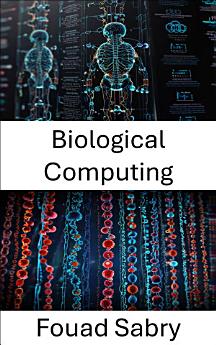eBook 정보
Chapters Brief Overview:
1: Biological computing – Explores the intersection of biology and computation, setting the foundation.
2: Reactome – Examines biochemical pathways as informationprocessing networks within living systems.
3: Molecular logic gate – Discusses how molecules perform logic operations, mimicking digital circuits.
4: Multistate modeling of biomolecules – Analyzes biomolecular dynamics for computational applications.
5: Wetware computer – Introduces biocomputers using living cells as functional computational units.
6: Nanobiotechnology – Highlights the role of nanoscale biological tools in computational advancements.
7: Aptamer – Covers synthetic molecules that bind to targets with high specificity, aiding computation.
8: Transcriptor – Explains transistorlike biological components essential for genetic circuit design.
9: Bioinformatics – Details computational techniques for analyzing biological data and genomic sequences.
10: Metabolome – Investigates metabolic networks and their potential for biological computation.
11: Gene regulatory network – Describes gene interactions as complex computational decision systems.
12: Biomolecular engineering – Discusses the design and optimization of biological computing elements.
13: Synthetic biology – Explores engineered biological systems capable of executing computational tasks.
14: DNA computing – Showcases DNA as a medium for encoding, storing, and processing information.
15: Biophysics – Examines physical principles underlying molecularscale biological computations.
16: Chemical computer – Investigates chemical reactions as computational processes beyond traditional computing.
17: Natural computing – Explores computational paradigms inspired by natural biological mechanisms.
18: Metabolic network modeling – Discusses frameworks for simulating metabolic processes computationally.
19: Computational gene – Explains the digital representation of genes and their computational significance.
20: Metabolic engineering – Shows how metabolic pathways are designed for optimized computational efficiency.
21: Genomics – Examines largescale genetic data analysis and its impact on computational biology.
By bridging molecular science and computation, Biological Computing presents a transformative perspective on problemsolving in modern science and engineering. Whether you're a researcher, student, or enthusiast, this book unlocks the potential of nanobiotechnology in reshaping our digital and biological future.











